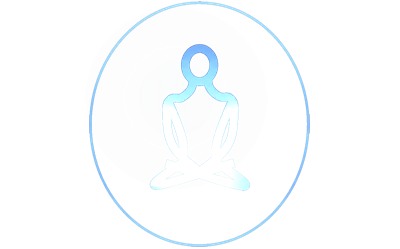Healing Emotions
Hello everyone, I hope you are all well.
Today's blog post is sharing an extra chapter that I have recently added to the book "Undisturbed; A Guide To Emotional Wellness."
After the book's release a while ago, I felt an extra chapter may be helpful to address any issues or questions that arise when someone goes through the emotional healing process.
For those of you who have purchased the book already, you can read the chapter for free. If you don't have the book yet then this chapter may be useful for you, and if you would like to go deeper into the topic or yourself, the book is always available here.
Here it is:
Stage 1 - Awareness, Noticing The Emotion Is Not Who You Are
The first stage of emotional healing is always to see that in fact, whatever you experience, whatever comes and goes, is not really who you are. Our habit is to assume that every time I feel angry, hateful, resentful, anxious, afraid, jealous, good or bad or anything else, then it is me and it is my fault. Not only do we often take our thoughts and feelings to be who we are, but we also believe that we are the ones generating these things on purpose.
It is a very significant thing to notice emotions and thoughts, rather than thinking you are them or thinking you are trapped inside of them.
With this said, people can often fall into a trap of forming a sense of self that feels as if it is an object that is watching other objects - a little ball of "me" which desperately tries to watch and stay vigilant and distance itself from any unwanted thoughts and emotions.
We are often trained to view life through a dense ball of resistance called "me". When we notice that emotions aren’t who we are, because they come and go, rise and fall while we remain here, sometimes people can then "look" at emotions from this same dense ball of resistance inside, perhaps somewhere in the head or behind the eyes.
Luckily, this dense ball is also another feeling, another sensation, that is in fact effortlessly noticed.
Our thinking minds can not understand that something can be observed by nothing. We assume that if we are aware of something, then the awareness must be a thing as well. It must be a person. It must have a shape and a feeling and a denseness. In truth, this isn’t true. Have no assumptions about what awareness really is. Notice that anything that feels as if it is you, is arising in you. If this starts to feel confusing, it just shows that our minds are not capable of grasping this through thinking. Don’t worry about understanding any of this at all.
With all of that said, the first stage in the emotional healing process is no longer assuming that emotions are who you are in essence.
Stage 2 - Yielding, or Acceptance
It is certainly possible to feel aware of a painful emotion, and yet still have a strong resistance to it. It is only normal. We are always trained to fight and resist what is not desirable, in the hope that the resistance will fix things. Certainly on an inner level, the resistance creates a tension that seems to hold what we do not want in place.
Then, someone can hear about the benefits of yielding or not resisting or accepting the emotion, letting it be exactly as it is. If this is done so that eventually they can get rid of this annoying emotion that they are secretly resisting, then they may end up frustrated because it isn’t working how they want it to.
It often helps to be very experimental, or playful. What would happen if I let this feeling be whatever the hell it wants to be, so that it isn’t my responsibility to manage it anymore? How would it feel to yield to this resistance inside of me? How would it feel to be without this resistance to myself, just for a moment?
If you approach things like this hypothetically, you can let yourself off the hook. Things aren't so heavy. You can even try the hypothetical approach with repetitive negative thought patterns or emotions. For example - how would it feel to not need to be angry at this? You then leave a space. You feel it out. Then you can notice not only how you feel, but what you gain or lose by being without a certain draining emotion. How do I benefit, or how am I losing out on something?
Often you might find you are not hindered by letting something go, and that in fact through treating it hypothetically ("What if?"), you show to yourself that when you treat yourself and your feelings lightly, things can be released far more easily than when you were fighting against what you didn’t like within your mind and body. This leads us to the final stages of the emotional healing process...
Click here for Part 2...



